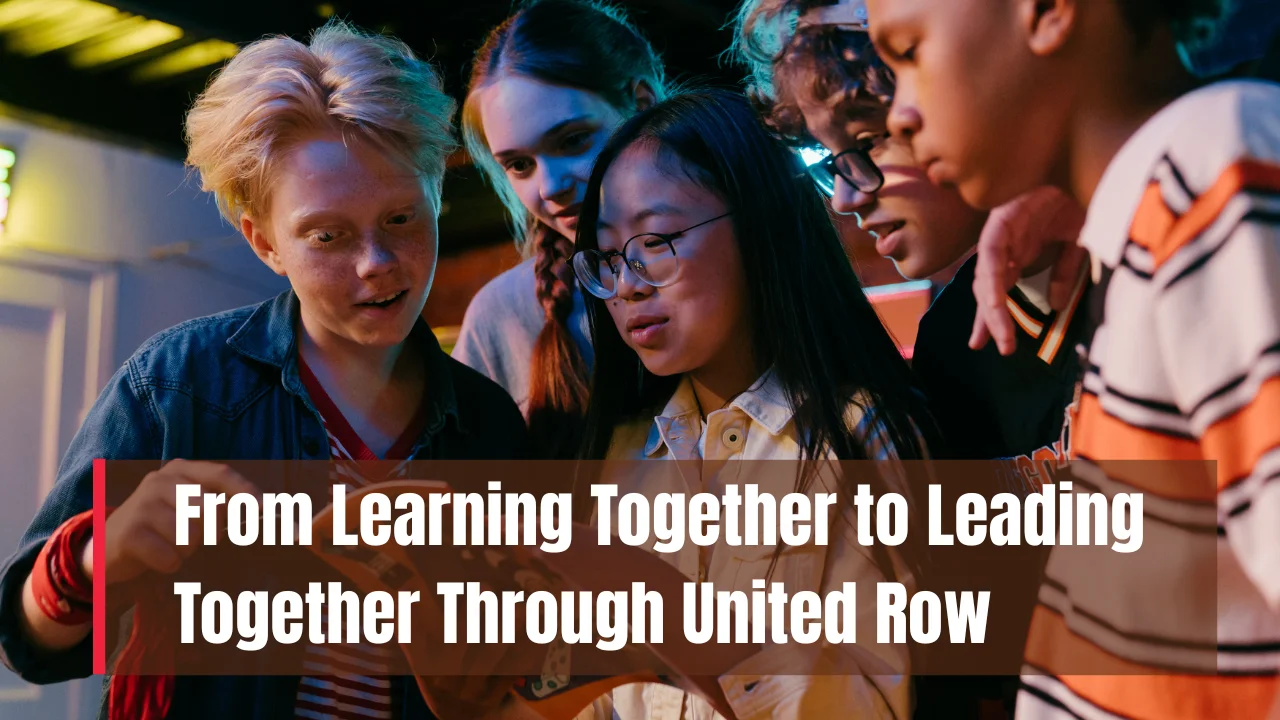Emotional Intelligence in Teens: Emotional intelligence in teens is becoming one of the most vital aspects of adolescent development today. As the pressures of academics, social media, and personal identity mount, teens are often left navigating complex emotions without the tools to manage them effectively. This gap can lead to anxiety, impulsiveness, and poor relationships if not addressed early.
In this article, we explore how united row pathways—collaborative, group-based approaches—can help nurture emotional intelligence in teens. You’ll learn how schools, families, and peer groups can support teens through structured emotional learning strategies, practical habits, and daily experiences. This comprehensive guide offers unique insights into how these pathways work and how they contribute to shaping emotionally strong young individuals.
Emotional Intelligence in Teens: A Key to Resilience and Growth
Building emotional intelligence in teens is more than just teaching them to recognize feelings. It’s about creating environments where they can explore emotions, understand social dynamics, and learn how to respond thoughtfully. These skills are cultivated through consistent exposure to group activities, mentorship, and real-life interactions, which we refer to as united row pathways. These approaches emphasize collaboration, emotional literacy, self-awareness, empathy, and communication—all of which prepare teens for lifelong mental and emotional wellness.
Overview Table: Glance at United Row Pathways for Teens
| Aspect | Insight |
| Peer Support Systems | Builds empathy, active listening, and shared emotional growth |
| Classroom SEL Programs | Teaches emotional regulation through guided instruction |
| Group Projects | Encourages teamwork, responsibility, and communication |
| Parent-Teen Dialogues | Strengthens family bonds and emotional openness |
| Emotional Reflection Activities | Helps teens recognize and name their feelings |
| Youth Mentorship Circles | Offers real-life guidance and emotional modeling |
| Conflict Resolution Practice | Improves problem-solving and emotional control |
| Daily Emotional Check-ins | Builds self-awareness and tracking of emotional states |
Importance of Emotional Intelligence in Teens
Emotional intelligence in teens forms the emotional foundation for decision-making, relationship-building, and resilience. A teen who understands their emotions can navigate peer pressure, academic stress, and family conflict more confidently. It supports a healthier mindset, reduces behavioral issues, and improves academic performance.
Beyond school, emotionally intelligent teens are better prepared for life’s challenges. Whether they are entering college, starting jobs, or building social networks, the ability to manage emotions and communicate clearly is invaluable. As the emotional demands of the modern world grow, this skill becomes a key differentiator between thriving and struggling youth.
What Are United Row Pathways?
United row pathways are structured group-based strategies designed to nurture emotional skills through collective experience. These include peer-led discussions, team projects, mentorship programs, and structured emotional learning in school settings. Instead of learning in isolation, teens develop emotional intelligence through cooperation and shared reflection.
This method places teens in environments where empathy, trust, and emotional vulnerability are encouraged. When emotions are shared and respected in a group, teens learn to better understand themselves and others. The consistent exposure to such pathways strengthens their ability to process emotions, regulate reactions, and offer support to peers.
Benefits of Group-Based Emotional Learning
One of the greatest strengths of united row pathways is their ability to foster emotional safety. Teens are more likely to express their emotions when they feel understood by their peers. In structured group activities, they are encouraged to speak honestly, listen actively, and respond with empathy.
Group settings allow teens to witness a range of emotions in others, helping them understand emotional diversity and the importance of emotional regulation. These environments also teach teens how to handle feedback, resolve conflicts peacefully, and celebrate emotional growth collectively. The result is a more emotionally literate and socially aware generation.
Role of Schools in Building Emotional Intelligence
Schools are uniquely positioned to implement united row pathways. Social Emotional Learning (SEL) programs are growing in popularity across schools globally. These programs focus on self-awareness, self-management, social awareness, relationship skills, and responsible decision-making.
Teachers can foster emotional intelligence through simple classroom activities like emotion journals, group discussions, or empathy exercises. Collaborative learning tasks and team-based challenges help teens practice real-time emotional problem-solving. By making emotional intelligence a part of the curriculum, schools ensure teens grow both intellectually and emotionally.
How Families Can Encourage Emotional Growth
Families play a crucial role in reinforcing emotional intelligence in teens. At home, open conversations, shared activities, and consistent emotional modeling build a foundation for emotional literacy. Parents who validate emotions, listen actively, and respond without judgment help teens feel emotionally safe.
Simple practices like asking reflective questions during dinner, watching emotion-driven films together, or practicing gratitude can create deeper emotional connections. These habits don’t require complex tools, just intention and consistency. When family environments reflect empathy and emotional openness, teens carry these values into their broader social lives.
Two Key Pathways That Work Best
- Peer Support Groups
These offer a trusted circle where teens can voice struggles and achievements. Facilitated by educators or counselors, these sessions build emotional trust, promote deep listening, and help teens develop empathy through shared experiences. - Collaborative Projects
Engaging in group tasks encourages cooperation, emotional control, and team spirit. Teens learn to manage stress, resolve conflicts, and motivate each other while working toward a common goal. These projects build emotional endurance and interpersonal skills.
Impact on Mental Health and Behavior
Teens with strong emotional intelligence are generally more balanced, both mentally and socially. They are less prone to anxiety, depression, or extreme emotional outbursts. Emotional intelligence supports emotional regulation, helping teens cope with stress in healthier ways.
Such teens are also less likely to engage in risky behavior. Their awareness of emotions allows them to make better choices, avoid peer pressure, and form supportive relationships. Their ability to navigate challenges without being overwhelmed sets them apart in both academic and social settings.
Integrating Emotional Intelligence in Daily Teen Life
Building emotional intelligence in teens doesn’t need to be restricted to schools or therapy rooms. It can be woven into everyday life. Journaling, meditation, and mindful reflection help teens track their feelings. Digital tools like emotional tracking apps or mood boards can be engaging and easy to use.
Encouraging teens to identify their emotions during different moments—before a test, after a disagreement, or when feeling happy—builds awareness. When these small habits are shared in peer settings, they help normalize emotional discussions. Over time, emotional intelligence becomes a natural part of how teens think and behave.
Final Thoughts
Investing in emotional intelligence in teens means investing in a stronger future generation. Through united row pathways like peer support, group learning, and intentional family dialogue, we can help teens develop emotional resilience, empathy, and maturity.
The benefits of these practices extend far beyond teenage years. Emotionally intelligent teens grow into confident adults capable of maintaining healthy relationships, handling stress, and leading with empathy. Now more than ever, these skills are essential in shaping balanced individuals who can contribute positively to society.
If you found this article insightful, feel free to share it with parents, educators, or teens who could benefit. Stay tuned for more content on youth development, and don’t forget to check your daily horoscope for a moment of reflection and emotional clarity.
FAQs
It refers to a teen’s ability to understand, manage, and express their emotions effectively while empathizing with others.
They offer group-based environments that support emotional learning through shared experiences, discussions, and team activities.
Yes, emotionally intelligent teens are more likely to avoid conflict, manage stress, and maintain healthy social relationships.
Parents help by modeling emotional openness, encouraging dialogue, and creating a safe space for teens to express feelings.
They are teachable. With consistent exposure to emotional learning strategies, teens can develop and improve these skills over time.












